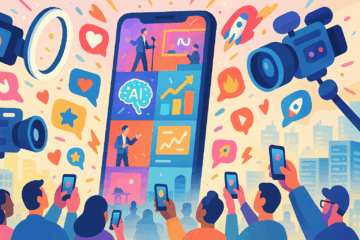Nine months after the release of ChatGPT, this is a question that suddenly quite a few people are asking. AI luminaries such as Gary Marcus and François Chollet as well as respected industry analysts such as Ben Evans are openly postulating that Gen AI might not be the civilization-changing, business-disrupting force that it was supposed to be.
Indeed, there is a growing sense that maybe this generation of Gen AI technology is not nearly there yet. We’re all still waiting for the promised disruption of search and office productivity. Coders seem to be the only group that is consistently experiencing strong productivity gains.
So is this yet another overhyped wave along the lines of the metaverse, NFTs and crypto? Is there no real substance to Gen AI beyond the cool ChatGPT demos?
A few lessons from past tech waves: Complex general purpose technologies (like LLMs) go through a natural cycle of adoption, famously described by analyst firm Gartner in its Hype Cycle: A technology trigger starts a wave of enthusiasm that peaks with inflated expectations, only to decline rapidly into a trough of disillusionment. It then (ideally) slowly recovers to reach a plateau of productivity, but this takes years or even decades.
The Web is a great example: The dot-com boom of the 90s attracted incredible amounts of attention and investment money. When digital disruption turned out not to be so easy after all, everything came crumbling down. The Web needed well over a decade and major adjacent innovation such as broadband Internet to turn into the world-changing force it is today.
It’s highly likely that Gen AI will follow a somewhat similar pattern. LLMs are a new category of technology that is still not well understood. They need the right kind of use cases, input preparation, output processing and overall environment to turn into a truly useful business tool.
That’s why despite all the talk, very few solutions are actually in production in enterprises. Questions like security, transparency, reliability, performance, user training etc. are largely unsolved.
So, based on historical patterns, what’s likely going to happen in the next few years?
– LLMs and other forms of Gen AI will find a very active audience in multiple niches that can deal with current shortcomings. These niches can be very large (like coding, design or marketing).
– Gen AI tech will continue to improve, although less dramatically than in the recent past. For example, it’s likely that problems like hallucinations can be addressed in the next few years.
– Consulting firms will be the early winners since they are best positioned to make Gen AI useful for businesses — with all the customization and problem mitigation that is still needed.
– At the same time, startups and incumbents alike will have an incentive to build products that enable Gen AI to be used at scale in business. They will transfer learnings from active niche markets to the broader mainstream.


